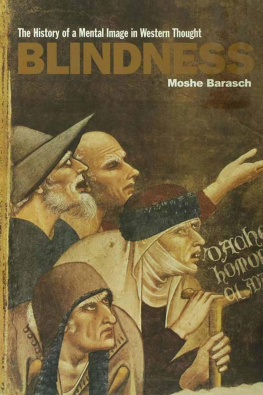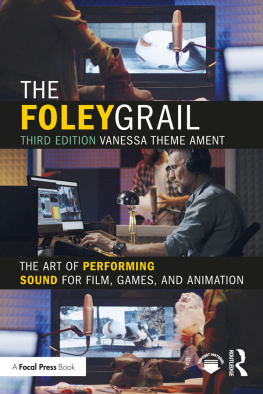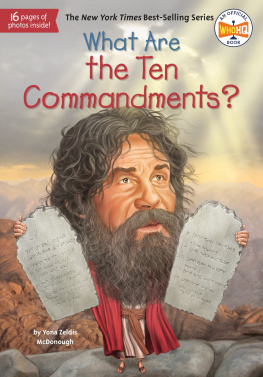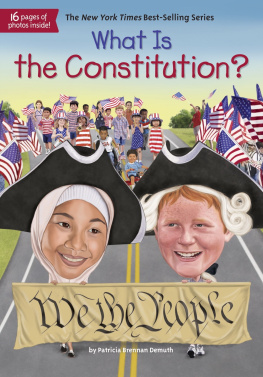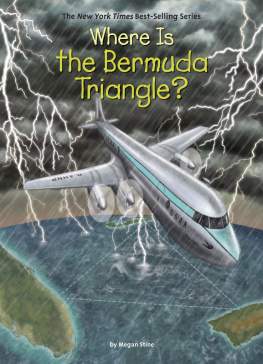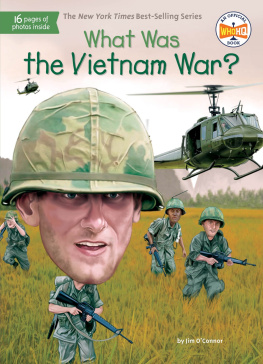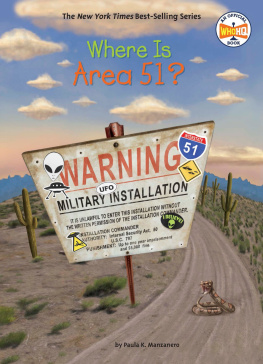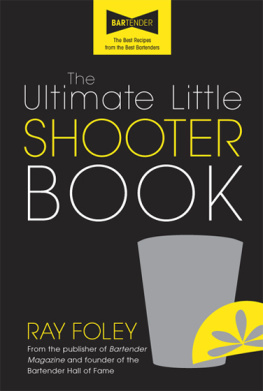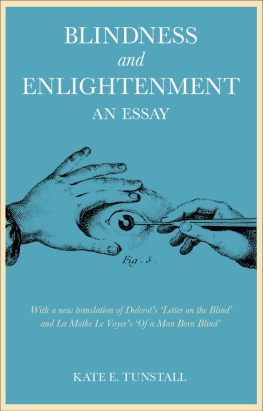FOREWORD.
The following lectures were written primarily to be delivered at the summer sessions of the University of California, at Berkeley and at Los Angeles, in the summer of 1918. We are printing them, however, so that the information in them can be more widely distributed, since they are the outgrowth of almost a quarter of a century spent in work for the blind, and were written from the standpoint of a blind person, seeking to better the condition of the blind. They were addressed not to the blind, but to the seeing public, for the benefit that will accrue to the blind from a better understanding of their problems.
The successful work of Miss Foley as a student in the California School for the Blind, as a volunteer teacher, and in recent years as home teacher for the California State Library, makes these lectures particularly important and authoritative.
Milton J. Ferguson ,
State Librarian.
THE PSYCHOLOGY OF BLINDNESS.
In view of the widespread interest now manifested in the blind and their problemsan interest deepened by reports from the warring countriesI feel that a knowledge of the psychology of blindness should prove of great help to those wishing to take part in the re-education of the war-blinded soldiers.
As early as 1773, Diderot wrote an essay on the psychology of blindness, and, as this essay was written at the very beginning of blind education, it is interesting to note that his ideas coincide with the most advanced deductions on the subject today. However, as these deductions are not very numerous, and as the available literature is very scant, I shall be obliged to draw largely from my own experience and that of other blind persons, in presenting the subject to you.
First, let us consider the subject from the point of view of one who has been blind from early infancy, whose fingers are his eyes, and whose mental vision enables him to see many things not revealed by physical sight. A blind man once said, when asked if he would not be glad to have his eyesight, "to improve the organs I have, would be as good as to give me that which is wanting in me." This sentence sums up the whole aim of blind education. Dr. Eichholtz, a noted educator of the blind, says: "Education of the blind absolutely fails in its object, in so far as it fails to develop the remaining faculties to compensate for the want of sight." "Touch and sight must be developed by means which practically in all respects are dissimilar. A blind man discerns the sensation from the real presence of an object at his fingers' end, only by the force or weakness of that very sensation." So, then, let us consider that, to the blind, fingers are eyes, and remember that they have ten instead of two. As I have been blind since early infancy, my own case offers an illustration in point, so I hope you will not misunderstand the predominance of the personal note in these observations.
Blindness does not lead to any refinement of the senses of touch, hearing or smell, but to a greater keenness in the interpretation of the information furnished by these senses. Diderot says, "the help which our senses reciprocally afford to each other, hinders their improvement," and so the person in possession of all the senses regards the blind man as a marvel of intelligence and skill, just because, on losing his eyesight, his remaining senses come to the rescue, and he continues to live and move and have his being without the most precious of all physical senses. In the world of the blind child eyesight plays no part, and so the other senses are made to do double duty, and the extent to which these may be cultivated is limited only by the mentality of the child, its early training and environment.
I think hearing is the first sense to be cultivated, both in the infant and the adult suddenly deprived of eyesight. Through its ears, the child recognizes voices, detects different footfalls, is enabled to measure distance with a fair degree of accuracy, and can form a very clear idea as to the shape and dimensions of a room. All this information is conveyed to the normal child through the eyes. Dr. Illingworth, a noted educator of the blind in England, says: "Of course, there is no doubt that blindness tends to a higher and more perfect development of the sense of hearing, even in the uneducated, on the same principle that Nature almost always comes to the aid of her children in providing protective agencies of one kind or another, even in the very lowest organisms, and, naturally, for those who are blind, the sense of hearing is the first to fall back upon for this purpose. Thus it becomes more highly developed, because there is more frequent call upon, and exercise of, that sense." Another writer has said, "but a distinction should be made between sensitiveness and an ability to use the sense, between native sensory capacity of the sense organ, and the acquired ability to use that capacity."
The second sense to be developed in the blind child is that of touch, and this development begins at a very early date, supplementing the sense of hearing. Long before the child is old enough to read, its fingers have become its eyes, and each of the ten fingers carries its quota of information to the active brain, the amount and quality of this information increasing with the mental development. In addition to the fingers, the nerves of the face and those of the feet contribute their share of information. The child learns to detect differences in climatic condition by the feel of the air on its face. I have often heard very young blind children exclaim, "It feels like rain! It feels like a nice day! The air feels heavy! The wind feels soft! The wind is rough today!" The nerves of the feet contribute their share of helpful knowledge, calling attention to differences in the ground often unnoticed by the eye, telling whether the path is smooth or rough, grass-grown or rock-strewn. The auditory and pedal nerves are mutually helpful, the ear recording and classifying the sounds made by the feet, often guiding them aright by recalling certain peculiarities of soundwhether the ground is hollow, whether the sidewalk is of board or cement, and whether there is a depression here or a raised place there. I often wonder how deaf-blind people walk as well as they do, when they can not hear their footfalls. I find walking much more difficult when on a crowded thoroughfare, or when passing a planing mill or boiler factory.
The last of the trio of senses whose development compensates in large measure for the want of eyesight, is that of smell. Through this sense, the child comes very close to the heart of Nature. Of course, the ear is charmed by the song of birds, the hum of insects, the murmur of wind in the trees, or the sound of mighty waters. Through the finger-tips, he learns the shape and size of each flower and shrub and tree, traces the delicate pattern of ferns, notes wonderful rock formations, and finds the first blade of tender grass coaxed to the surface by the warmth of the Spring sunshine. But all this does not bring him the keen pleasure he experiences when he inhales the fragrance of the rose, the perfume of flowers with the dew still upon them, the smell of the freshly turned earth, the newly cut grass, or the blossom laden trees. In the case of Helen Keller, the olfactory nerves have been cultivated to a very high degree, and through this sense she is often able to recognize her friends. A little blind boy once told me that each member of his family had a distinct odor, by which he could tell things worn by them, or books they had handled. Laura Bridgeman is said to have selected the laundry of the pupils in her school by this unusual process. I frequently astonish my friends by telling them when I pass a drug store or hospital, a grocery, a confectioner's, or drygoods store, a paint shop, a florist's stand, or a livery stable. I do not think the blind have a keener sense of taste than any other class of people, although this claim is often made, even by the blind themselves.




